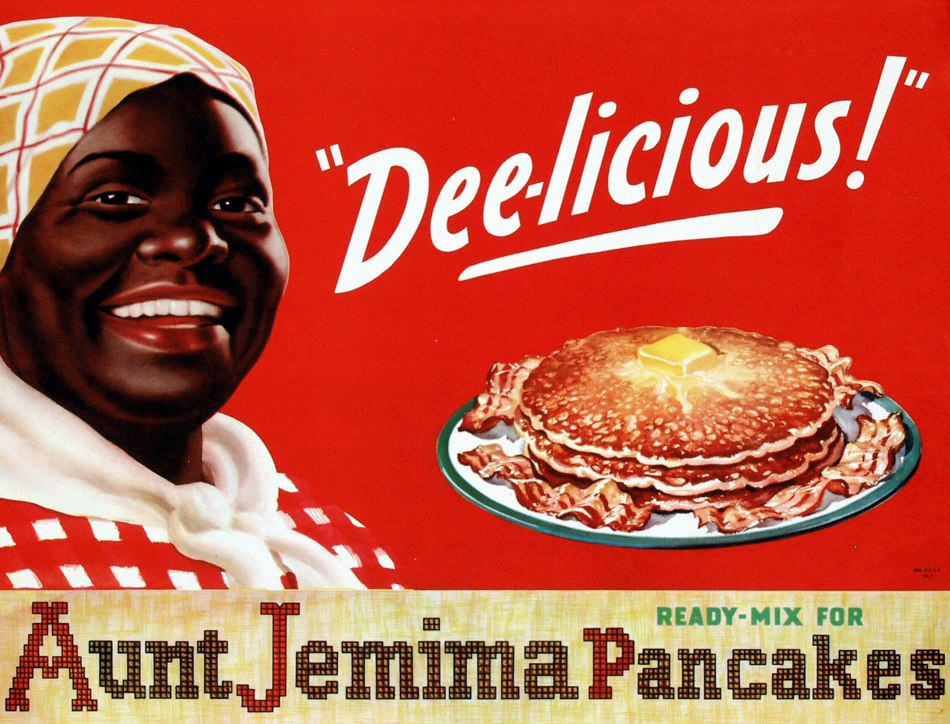
The Aunt Jemima brand is changing its name and image, according to Quaker Oats. The company says it recognizes that “Aunt Jemima’s origins are based on a racial stereotype.”
The Aunt Jemima brand of syrup and pancake mix shows a Black woman named Aunt Jemima. The original image shows her dressed as a minstrel character.
The look has changed many times in the past 130 years. In recent years, Quaker Oats took off the “mammy” kerchief from Aunt Jemima in response to growing criticism that the brand tolerated a racist stereotype rooted in the days of slavery.
However, Quaker Oats, a subsidiary of PepsiCo, said changing the image and name is part of the company's effort “to make progress toward racial equality.”
“We recognize Aunt Jemima’s origins are based on a racial stereotype,” Kristin Kroepfl, vice president and chief marketing officer of Quaker Foods North America, said in a press release.
“As we work to make progress toward racial equality through several initiatives, we also must take a hard look at our portfolio of brands and ensure they reflect our values and meet our consumers’ expectations.”
Kroepfl added that the company made ways to “update” the brand to be “appropriate and respectful” but it discovered that the changes were not enough.
Aunt Jemima received new criticism recently amid protests across the US that were triggered by the murder of George Floyd in Minneapolis police custody.
Social media users called out the brand for still using the image of Aunt Jemima and highlighted its racist history, with the topic trending on Twitter.
“It’s time to let go of symbols like this because of how weighted they are and what they represent,” Riché Richardson, an associate professor at Cornell University, said during the “TODAY” show on Wednesday.
Aunt Jemima is “a retrograde image of black womanhood on store shelves,” Richardson said. “It’s an image that harkens back to the antebellum plantation ... Aunt Jemima is that kind of stereotype is premised on this idea of black inferiority and otherness.”
According to the company’s own timeline of the product, Aunt Jemima was first “brought to life” by Nancy Green, a black woman who was a former slave and became the model of the product in 1890.
A judge dismissed a lawsuit against the company in 2015 by two men who said they were descendants of Anna Harrington. She was the black woman who started portraying Jemima in the 1930s. The men said the company did not properly give her estate enough royalties.
Quaker announced that the new packaging will start to appear in the fall of 2020. In addition, a new name for the foods will be released at a later date.
The company added that it will donate at least $5 million over the next five years “to create meaningful, ongoing support and engagement in the Black community.”
US companies on Black Lives Matter
Like Quaker Oats, other companies are also expressing their own stance on the "Black Lives Matter" protests.
Social media giant Facebook has pledged to donate $10 million to the protest groups. The company’s chief executive officer (CEO) Mark Zuckerberg wrote in a post: “We stand with the black community.”
Fitness company Peloton said that it will be donating $500,000 to the legal defense fund of the National Association for the Advancement of Colored People (NAACP) as part of an initiative to support black communities.
Meanwhile, Nike released an online video, which reversed its iconic slogan “Just Do It”.
In the video, the firm stated: “For once, Don’t Do It.”
“Don’t pretend there’s not a problem in America. Don’t turn your back on racism. Don’t accept innocent lives being taken from us. Don’t make any more excuses. Don’t think this doesn’t affect you. Don’t sit back and be silent,” Nike said.






